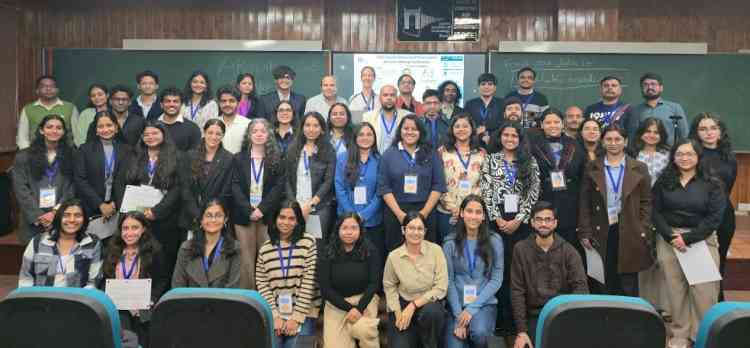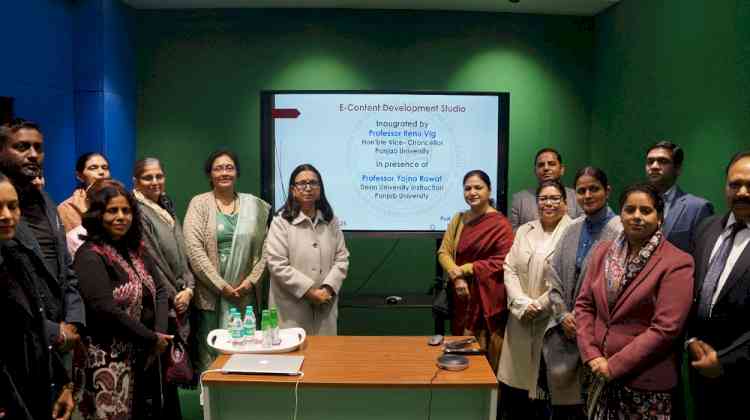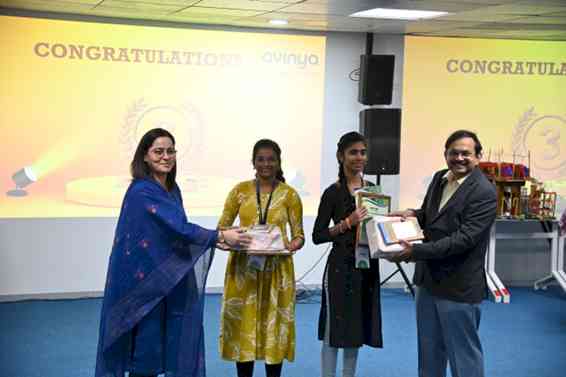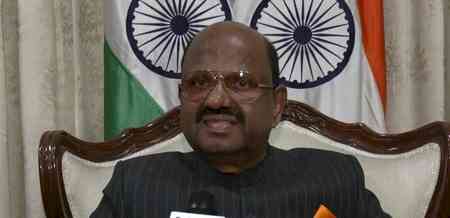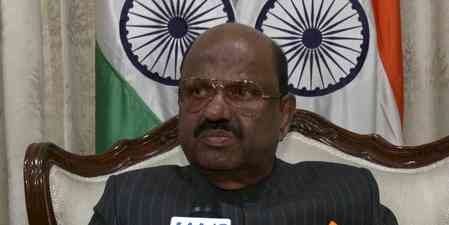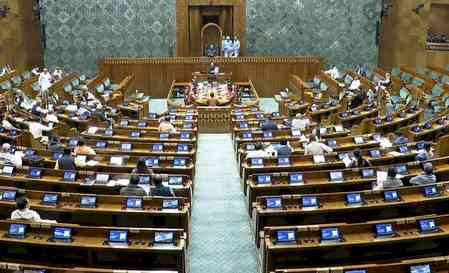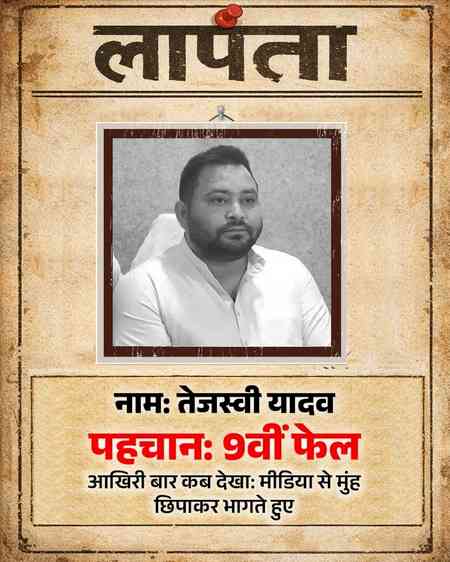Special lecture on “Revenue, Responsibility, and Reform: 75 Years of Fiscal Federalism in India”
The Department of Public Administration, in collaboration with the Indian Institute of Public Administration (IIPA) Punjab and Chandigarh Regional Branch, today organised a special lecture on “Revenue, Responsibility, and Reform: 75 Years of Fiscal Federalism in India”. The lecture was delivered by Prof. V.N. Alok, Professor, IIPA, New Delhi, an eminent scholar in the field of public finance and federal studies.
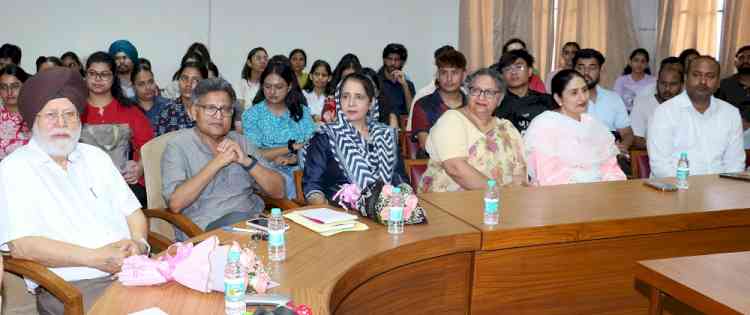
Chandigarh, September 29, 2025: The Department of Public Administration, in collaboration with the Indian Institute of Public Administration (IIPA) Punjab and Chandigarh Regional Branch, today organised a special lecture on “Revenue, Responsibility, and Reform: 75 Years of Fiscal Federalism in India”. The lecture was delivered by Prof. V.N. Alok, Professor, IIPA, New Delhi, an eminent scholar in the field of public finance and federal studies.
Prof. V.N. Alok began his address by tracing the historical roots of fiscal federalism in India, highlighting how revenue-sharing arrangements were designed to balance the needs of the Union and the States. He explained that income tax and excise duty were traditionally distributed between the Centre and the States, though the system has often faced challenges due to leakages and dishonesty in collection and reporting.
A significant part of his lecture focused on federalism and cooperative federalism. He discussed about four pillars of fiscal federalism that constitutes, the kind of responsibilities and tax impositions that are assigned to various levels of governments, inter-governmental fiscal transfers and fiscal institutions of India. He emphasised that such transfers are vital for addressing both vertical imbalances (between the Centre and the States) and horizontal imbalances (among different States). These transfers, routed through the Finance Commission and other mechanisms, ensure equity, efficiency, and fiscal stability within the federation.
Prof. Alok also touched upon the need for reforms to strengthen cooperative federalism, arguing that fiscal relations must adapt to the changing dynamics of the economy and governance. He further, elaborated the requirements for Viksit Bharat that includes Universal access to safe drinking water to all, quality education, advancement of family health centres and public transport. He stressed that fiscal discipline, transparency, and accountability are indispensable for ensuring that resources are optimally utilised for developmental priorities.
Chairing the session, Professor B.S. Ghuman, Chairman, IIPA Punjab and Chandigarh Regional Branch highlighted the critical issues like centralization of taxation, fiscal autonomy of states and devolution of cess and surcharges to states. He concluded the need for accommodating Viksit States in the vision of Viksit Bharat.
Earlier, Dr. Bhawna Gupta, Chairperson in her welcome address illustrated that over the past 75 years India has experimented and refined its fiscal arrangements. Prof Ramanjit K. Johal, Hony.Secretary introduced the Speaker and shared the legacy of Department organising such special lectures in collaboration with IIPA Punjab and Chandigarh Regional Branch.
The lecture concluded with an interactive session, where faculty members and students engaged Prof. Alok in a discussion on the challenges of implementing fiscal federalism in practice and the way forward under the framework of the New India vision. The lecture was followed by an engaging discussion in which Mr Balwinder Singh IAS Retd., Dr. Bharati Garg, Mr. Harish Bhatia, and Mr. Anmol Rattan actively participated, raising pertinent questions and observations that enriched the deliberations
The session was enriching and provided deep insights into the complex yet crucial role of fiscal federalism in sustaining India’s democratic and developmental trajectory.


 City Air News
City Air News 
